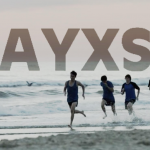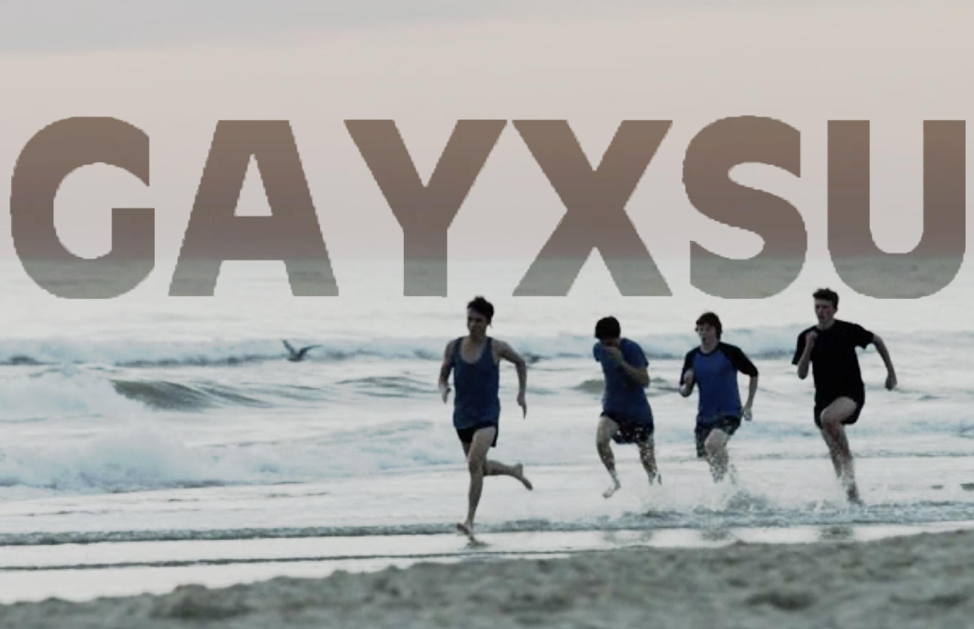
Author: Amelia Zeve
A scene from Jongens. Photo Courtesy: Pupkin Film
A trope that I’ve noticed, but a trope I’m not partially mad about, is the movie trope of queer romances budding in the summertime.
I can list off movie after movie that feature some sort of LGBTQ romance springing up in the season when the days are long, the nights are short, and the air is warm and smells like freshly cut grass and ice cream and everything feels so full of hope. The first movie that comes to mind when I think of cute and mainstream gay films set in the summer is Call Me by Your Name—the spellbinding, wildly popular queer romance set in the perpetual golden hour of an Italian summer.
Everything about the movie has the bubbly and sweet ambiance of summer love which adds an extra layer of wonder onto an already dizzyingly beautiful film. Like I said though, this isn’t uncommon for queer movies; it’s a trope that’s been around for a while, and one that can be seen exemplified in many movies—some good, some bad. In my opinion, though, one of the best films to fit under this trope (and honestly one of the best gay movies I’ve ever seen) is Jongens (English translation: Boys), a 2014 made-for-TV movie from Dutch director Mischa Kamp.

Photo Courtesy: Pupkin Film
Oh man, trying to describe that movie makes me emotional. The entire movie is a wild ride, but not for the typical reasons you might expect from a queer movie. The film opens at the start of summertime in the Netherlands, with 15-year-old track star Sieger (Gjis Blom) training with his best friend. Very early into the film, Sieger and his best friend get promoted to B-Team runners (the Dutch equivalent of varsity), and he meets the rest of his new relay team—including Marc (Ko Zandvliet.) Almost immediately, the two develop (and try to mask) obvious chemistry, and the film goes from there.

Marc (Zandvilet) gazing at Sieger (Blom.) Photo Courtesy: Pupkin Film
The thing that I love so much about the movie is how good it is. And not just “good” in the sense of how well-done the film is, but it’s also “good” in the sense that it’s wholesome and innocent and special. The movie perfectly captures the feeling of first love—the giddiness, the euphoria, the nervousness, the unsureness. The first time I watched the movie, in my freshman year of high school, I honestly cried my eyes out because of how beautiful and accurate the whole movie was.

Photo Courtesy: Pupkin Film
Falling in love for the first time is scary enough as is—but falling in love with someone of the same sex, especially if you’re not out to anyone (including yourself), is a pretty stupefying-ly scary feeling. The movie captures that perfectly, alternating between the sheer giddiness and the sheer terror of realizing one’s sexuality.
But the movie is more than that.

Photo Courtesy: Pupkin Film
Often times, producers feel like they can get away with a movie that lacks in plot, character depth, or cinematography simply because the film deals with LGBTQ+ issues. It’s an annoying paradox. I can’t tell you how many mediocre films I’ve watched off Netflix or YouTube that have so much hype simply because the characters are queer. And don’t get me wrong—I’ll watch more or less anything if there are queer characters—when we get representation, we’re stoked about it, pretty much no matter what. (I talked in my first installment of GAYXSU about how queer people sort of react the same way dogs do when they see other dogs when we see queer representation in media.) Whether we love it or hate it, we’re always enthusiastic to see that it’s there. It’s always disappointing when the film thinks it can coast on the fact that it deals with queer issues, and the studio cuts corners on other things—but Jongens doesn’t do that.

Photo Courtesy: Pupkin Film
The film is beautiful. So, so, so beautiful that it almost hurts. Watching it feels like looking into a time capsule of the first time you ever fell in love, looking into a time capsule of every up and down you’ve ever endured, every person who’s ever broken your heart and every person you’ve ever kissed or ever wanted to. The tension in the film builds alongside Sieger and Marc’s training for an upcoming track championship and is dripping with high school and general childhood nostalgia (the good kind, I promise); the crescendo of excitement and jubilance that comes with the freedom of summer, years before college, years before adulthood, years before anything too serious starts to take the main stage of anyone’s life. Everything is light, everything is fun. One of the best scenes of the entire 1-hr-17-minute film is one in which the relay team (including Sieger and Marc) are all swimming in a picturesque pond, wrestling with each other, and just having genuine, wholesome, immature fun.

Photo Courtesy: Pupkin Film
It’s the movie that queer people need and the movie we deserve. It’s cute and it’s beautiful and it’s well-done and it’s important and it’s rich, rich with conflict and rich with deep, vibrant relationships. The film is about falling in love and, especially, falling in love for the first time, which is ironic because it’s hard not to fall in love with the movie as you watch it.
So, let yourself fall in love. Let yourself watch it, and get excited for summer, and for falling in love, and for other people falling in love—honestly, let yourself believe in love again. The world can be a pretty dark and scary place, especially for queer people, but for an hour and seventeen minutes, let yourself escape to a Dutch summer where things are good, you’re happy where you are, discovering who you are—and everything is tinted with the rosy hue of falling in love.
AMELIA ZEVE | “Grease” is misogynistic but “Summer Lovin’” is forever the mood | KXSU Arts Reporter

